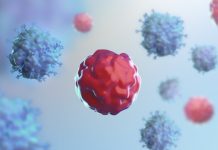
Early study results have highlighted the promising performance of the world’s first treatment for Creutzfeldt-Jakob disease, potentially a landmark step toward treating the deadly condition.
Designed by a team of scientists at the Medical Research Council (MRC) Prion Unit at UCL, the groundbreaking Creutzfeldt-Jakob disease (CJD) medication has shown promising results in an early study. The monoclonal antibody treatment, called PRN100, was administered to six CJD patients at University College London Hospitals (UCLH) NHS Foundation Trust between October 2018 and July 2019.
The study results, which are published in Lancet Neurology, demonstrated that PRN100 is safe and able to access the brain effectively, appearing to stabilise disease progression when dosing levels were in a target range.
What is Creutzfeldt-Jakob disease
Creutzfeldt-Jakob disease is an extremely rare but deadly human prion disease. This neurodegenerative disorder causes brain damage and is rapidly progressive and invariably fatal. Experts believe that CJD is caused by an abnormal isoform of a cellular glycoprotein called the prion protein. Sadly, people with the disease usually die within the first few months of a diagnosis, with statistics showing that in the US, there are between 1-1.5 cases of CJD per million of the population annually, around 350 cases per year.
PRN100 performance
Due to the small number of patients involved in the study, the team stated that their results should be considered preliminary, with more investigations required to obtain more comprehensive conclusions. Although none of the six patients involved experienced any side effects while receiving the treatment, sadly, they all died due to their condition.
Professor John Collinge, Director of the MRC Prion Unit at UCL and UCLH consultant neurologist, who led the development of the PRN100 treatment, said: “Drugs used to treat other diseases have been tried experimentally in treating CJD in the past, but none has had an impact on disease progression or mortality.
“This is the first time in the world a drug specifically designed to treat CJD has been used in humans, and the results are very encouraging. While the number of patients we treated was too small to determine whether the drug altered the course of the disease, this is nevertheless an important step forward in targeting prion infections. It has been a huge challenge to reach this milestone, and we still have a long way to go, but we have learned a great deal and these results now justify developing a formal clinical trial in a larger number of patients.
“We hope the drug may also have the potential to prevent the onset of symptoms in people at risk of prion disease due to genetic mutations or accidental prion exposure and may contribute to the development of therapies for more common dementias, such as Alzheimer’s disease.”
Professor Inga Zerr, from the Department of Neurology at Georg-August University of Gottingen, commented: “These outcomes are very encouraging and long-awaited but, in light of the limitations, such as the small number of patients included and the use of historical controls, these results must be considered preliminary.”
PRN100 was administered to the Creutzfeldt-Jakob disease patients by the UCLH under a “Specials” exemption instead of a regulated clinical trial. A Specials exemption enables a healthcare professional to treat an individual patient with an unlicensed drug when a licensed product on the market cannot meet their clinical needs.
Three of the six patients were able to consent to receive the CJD treatment themselves. Although the other three were not able to consent, with the support of their families, the UCLH sought the opinion of a judge in the Court of Protection to perform the trial.
Additionally, the UCLH created an oversight group that is independent of the MRC Prion Unit at UCL and treating clinicians. The group includes world-leading experts from an array of disciplines who met regularly with lawyers and patient advocates from the Cure CJD Campaign to consider safety, legal, and ethical issues surrounding the use of PRN100.
Professor Bryan Williams, director of the National Institute for Health Research (NIHR) UCLH Biomedical Research Centre (BRC), said: “UCLH is a bold healthcare institution which, along with its academic partner UCL, is always seeking to push the frontiers of medicine and science to deliver innovative treatments to patients.
“Creutzfeldt-Jakob disease is a rare and cruel disease which rapidly destroys the brain and for which there is currently no cure or licensed treatment. It was extremely important to us to find a way through the many challenges arising from the potential use of this novel treatment in order to offer it to a small group of patients.
“We are encouraged by these results, which demonstrate the treatment is safe and there is some signal of benefit. The hope is that this could pave the way for new treatments for other neurodegenerative diseases.”








